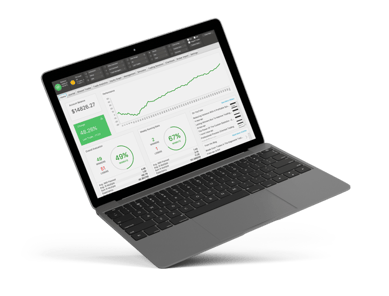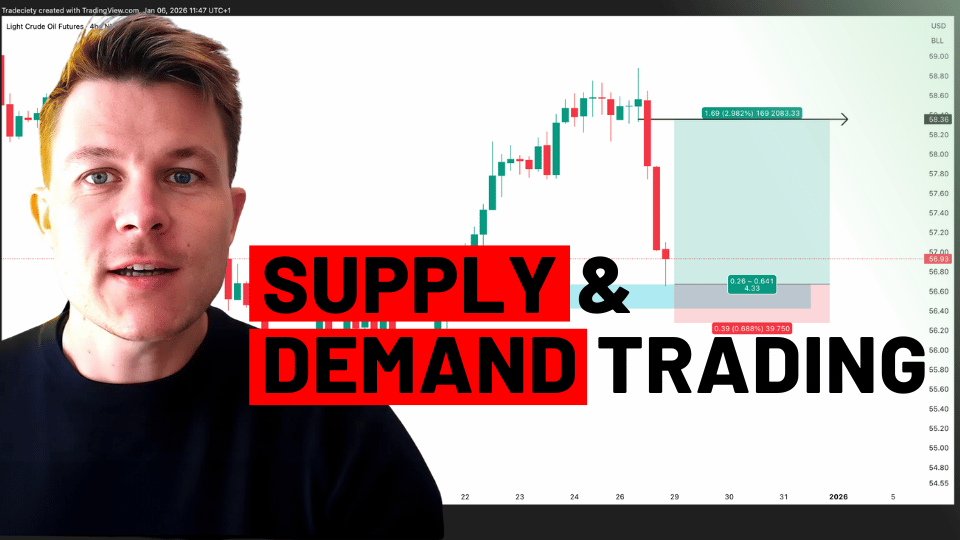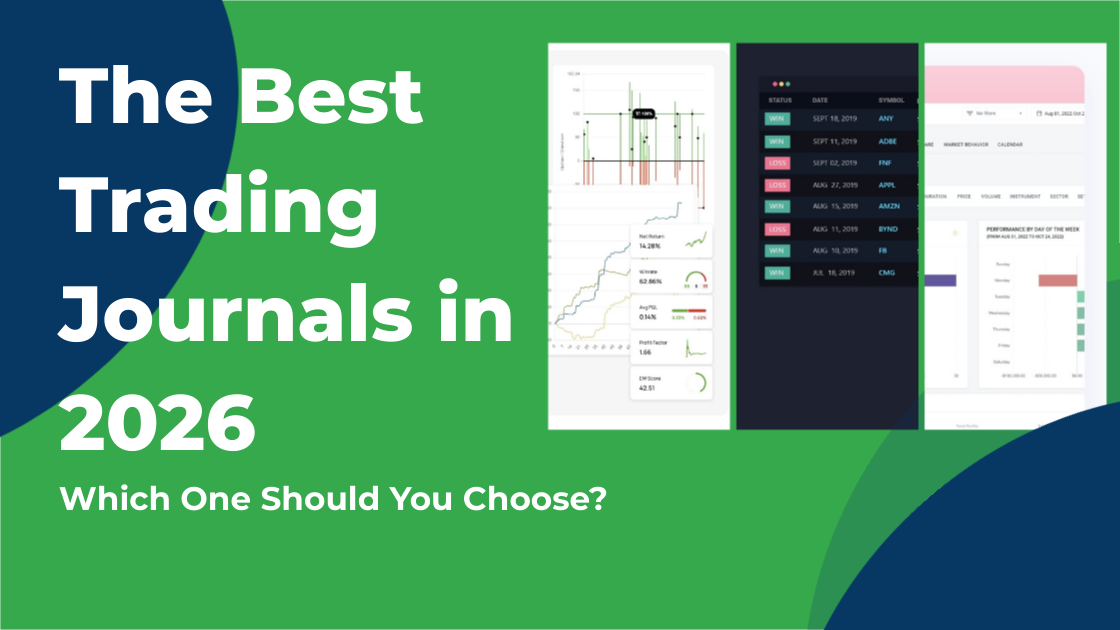Supply and Demand Trading in 2026
We have been trading supply and demand strategies for over ten years, and they have stood the test of time remarkably well. Supply and demand is...

You have all probably heard that you need to treat trading as a business if you want to be successful. But what does this actually mean? Instead of letting it be just another meaningless phrase, let’s take a deeper look to fully understand it.
The ideas behind “treating trading like a business” are very important to get you on the right track and after we have taken a look at the different aspects, I am sure you will get some ideas on how to take your trading to the next level and treat it more like a business.
Every business has either physical/virtual products or services to sell in order to generate profits. The business, hopefully, knows everything there is to know about their products, where it is from, how it is built, what the benefits are, what the potential struggles are, how to keep improving their product, what their customers want, and how to use it in the best possible way. The business must be the #1 expert in what they are offering. Obviously.

As a trader, your setups and your strategies are your products. Your setups are a set of rules and triggers to help you find potentially profitable trades. Whether your setups consist of classic patterns, indicators, pure price action or a combination doesn’t matter here.
What is important is that YOU must be the expert in your setups and patterns. You must know every little detail, when the setup works best, during which market conditions it doesn’t work, in which markets and timeframes to use it, how to improve the odds, how to set stops and pick targets, when to move stops and how to manage trades, when to add to a position or take some off the table, when to stay out, etc.
Most traders lack consistency and are far from being experts because they always change their approach. Do you think a business can be profitable if they’d change what they are selling every week? No!
So, really commit. In my trading, for example, I trade very specific patterns and most of my trades look very similar. This comes from years of specializing in only those setup types. For years I have been looking for the same things, patterns and price clue every single day, without deviation.
We have all heard this phrase and I hate it. Why? Because it has lost its meaning.
Every business has costs and you need to buy material, build plants, hire workers and invest in research and marketing. But for a business, it only makes sense to spend money if you’d expect to get a return on your investment. If you hire someone without skills, blow your marketing money for the wrong target audience, buy over-priced and useless material or purchase a private jet although your company is barely profitable, should you really look at those costs as a part of doing business`?Well, obviously not.
Yes, losses are part of trading but there are losses and then there are losses.
Losses are only good if you have followed your rules and most people lose because they don’t have an approach or break their rules. Those losses are not part of trading and your trading business.
Thus, always ask yourself: was this loss my own fault (breaking rules, etc) or did I fully respect my rules and the trade just didn’t work out?
Only if you can rule out the possibility that you messed up, then a loss becomes tolerable and part of doing business.
I keep saying it:
Most people want to be full-time traders and trade for a living but then trade like they have to retire tomorrow.
A businessman usually opens his business because he believes in what he is doing, he has a long-term vision for his operation and he is following a self-determined lifestyle. Only very few businesses start with the goal to close down operations in 6 months and sell everything for millions of Dollars and then sit on the beach all day long and sip a cold beer. Those people are driven by the wrong motives and the failure rate is then absurdly high.
Traders must also understand that they are in it for the long term. But even more important, they have to understand the implications that come with such a vision and a long-term approach:
 I love this concept and you can also apply it to any other area of your life.
I love this concept and you can also apply it to any other area of your life.
Professionals and the ones at the top do things differently and approach the area of expertise disciplined, organized and with conscientiousness. The next time you are about to do something, ask yourself “what would the pro do in my situation?” Would he really add to a losing trade, or widen his stop loss, or chase price, or listen to a random guy in a trading forum to bet his money, or buy into an ICO of something he doesn’t understand because he can 10x his money tomorrow? You can see where I am going with this…
Stop doing those things you know you should not be doing and start living in the pro mindset.
I know from experience that it won’t be easy and you won’t succeed all the time, but get into a habit of consciously looking at your decisions and actions and ask “what would the pro do now?” It will get you into a different mindset where you move in a better direction step by step.
Maybe it’s my German nature but I am a big proponent of having a clean and organized work environment. It will not only improve your productivity but it also signals to yourself that trading is something you take seriously. If you can, dedicate a part of your home as your “trading office” where the only purpose is trading and doing trading-related things. No Facebook and no Youtube – just trading.
I find that when I keep my office, my desk and my computer clean and organized, I work better and I enjoy it more as well. Avoid distractions and prove to yourself that trading is important to you. I don’t have my phone in my office, I block social media sites during work and I don’t watch Netflix in the background.
Remember: “what would the pro do?”
How do you start your trading day? Do you just fire up your trading platform and start hunting trades across all timeframes?
A business usually always has a plan, businessmen know what their goal is, what their objectives are, they are prepared, they analyze costs and opportunities and they also analyze past projects and keep accurate numbers of everything that goes on.
A trader must have a plan before he starts his trading to avoid being just reactive. I sit down every weekend and every morning and I analyze all my Forex pairs, I look at the timeframes that I trade and then I create my trading ideas. I know when I want to get in, when I stay out of a market, what the price action has to look like for me to get interested and what a no-trade scenario is. For that, I use my trading plan and I also use price alerts to stay on top of things.
This is only possible, though, if you know your products and services a.k.a. your setups and strategies. It all ties together.
Once done with my trading, I write all my trades in my trading journal. I analyze how I followed my plan, if I missed something, where I went wrong, what I did well, how I could have made more money and how I could have minimized losses.
Have you ever seen a business that operates without a real plan and without analyzing how their projects worked out? No, such businesses quickly fail because you don’t have any idea where the money is coming from, where it is going and how to fix things.
Every business has a mission and they usually know exactly why they are in business. Under Armour wants to do great sports apparel, Steve Jobs believed in Apple and a design-driven tech company, the IKEA founder loved building things, Mark Zuckerberg wanted to create a network for people, Thomas Edison was a passionate inventor, Elon Musk wants to take humanity to the next level etc.
 When I ask traders why they are trading, I hear things like: money, Ferraris, beaches, traveling all the time, private jets and alike…
When I ask traders why they are trading, I hear things like: money, Ferraris, beaches, traveling all the time, private jets and alike…
And whereas there is nothing wrong with those things in general, it just doesn’t go deep enough and once you hit your first brick wall, just being driven by money will not motivate you to push through.
Instead, think about ‘why’ you want money in the first place. Do you want to stay close to your family, see your kids grow up and work from home, work less but on more fun projects, start another business based on your passion and have trading as a side income, or are you just fascinated by the financial markets and money isn’t the objective at all?
Whatever it is, be clear about it and see how trading fits into your overall lifestyle choices. You are more likely to succeed if you really understand why you are doing things.

We have been trading supply and demand strategies for over ten years, and they have stood the test of time remarkably well. Supply and demand is...

3 min read
Choosing the right trading journal is essential for traders wanting to analyze performance, refine strategies, and improve consistency. In this...

3 min read
“95% of all traders fail” is the most commonly used trading related statistic around the internet. But no research paper exists that proves this...